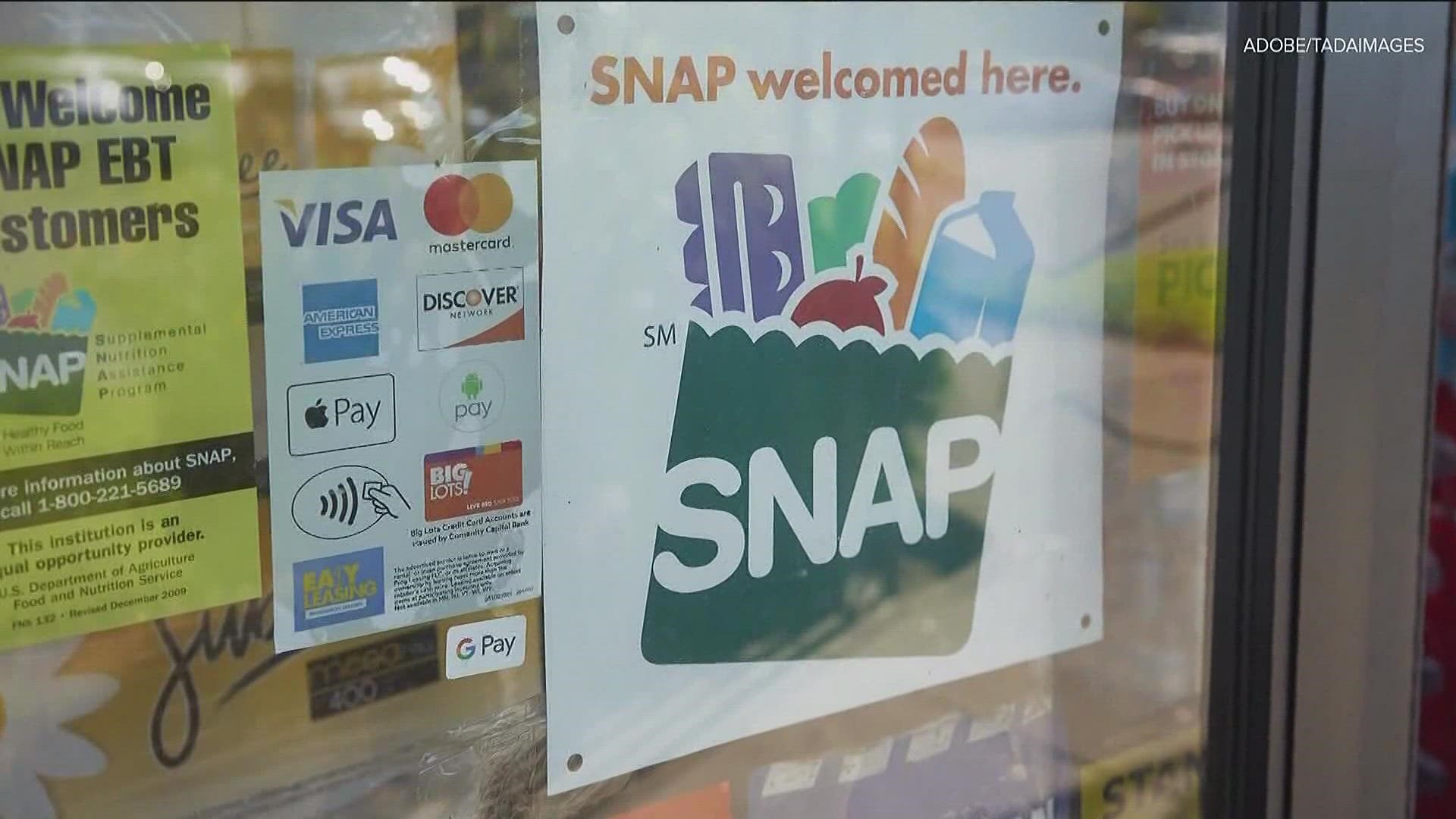As Georgia continues to dig out of a backlog of SNAP cases impacting tens of thousands of families, 11Alive learned the issue may not be fixed until the end of January.
Through an open records request filed in October, 11Alive obtained internal emails between the Governor's Office of Planning and Budget and leaders from Georgia's Department of Human Services. The emails, which discuss the department's use of overtime to resolve the backlog, point to January 31 as the timeframe for which the issue could be resolved.
When 11Alive asked the Georgia Department of Human Services about the date, a statement from DHS said "internal projections are subject to change."
"As we approach the holidays, we are continuing to work tirelessly to resolve the backlog and to improve output to ensure we are more able to respond to substantive changes in volume moving forward," the statement said. "Any customer in need of immediate food assistance can visit dhs.ga.gov and find a list of community resources at the top of our homepage."
The SNAP benefits backlog has impacted Georgia families on and off for a year now as the Georgia Department of Human Services struggles to process cases within federal guidelines. According to data provided by DHS this week, Georgia has a total of 105,801 pending renewals to date, 35,674 of which are overdue, with 31,080 pending state action. This number of recertifications, a process required for beneficiaries, is separate from any new applications the department must also process.
The frustration for families is not only tied to waiting but also related to the obstacles of reaching a caseworker, with claims voicemails are often full. That was the situation for Artina Murray, who spoke with 11Alive from Augusta.
"The caseworker's mailbox is full," Murray said. "The supervisors' mailboxes are full. They're not contacting us back."
Last month, Georgia DHS confirmed to 11Alive that the department is moving to a new telephone system, which will increase voicemail capacity. The state also continues to offer overtime and stipends with overtime hours, giving DHS the ability to process an additional 10,000 cases per month.
The state is also assessing the next steps when it comes to the use of technology like bots and AI. Georgia’s push for automation for parts of the SNAP certification process has long been a sticking point between the USDA Food and Nutrition Service and DHS. In a pair of September letters, Commissioner Broce writes that “more BOT technology is the right path forward,” a plan she said has staff support, while the USDA FNS tells 11Alive federal regulators do not think bots are the answer.
One technology waiver remains pending, "which would allow attended bots to assist caseworkers with repetitive tasks during the interview process," a DHS spokesperson shared. But the department is also "shifting our focus to recertification period changes," a policy change that the USDA has recommended to Georgia as an option to alleviate workload issues.
Meanwhile, Murray, who has been leaning on the support of local churches, said the communication situation was more understandable during the pandemic. She and her family are learning to cope in the interim, knowing others have less support.
"There's somebody out there with small kids," she added. "Just take whatever God gives you and just be grateful for every day that you're able to wake up because there are some people not going to be able to have Thanksgiving."
11Alive now has a running list of resources for families experiencing SNAP disruptions. Viewers who want to speak with a reporter about the delays can email the newsroom.

